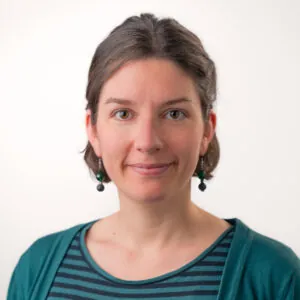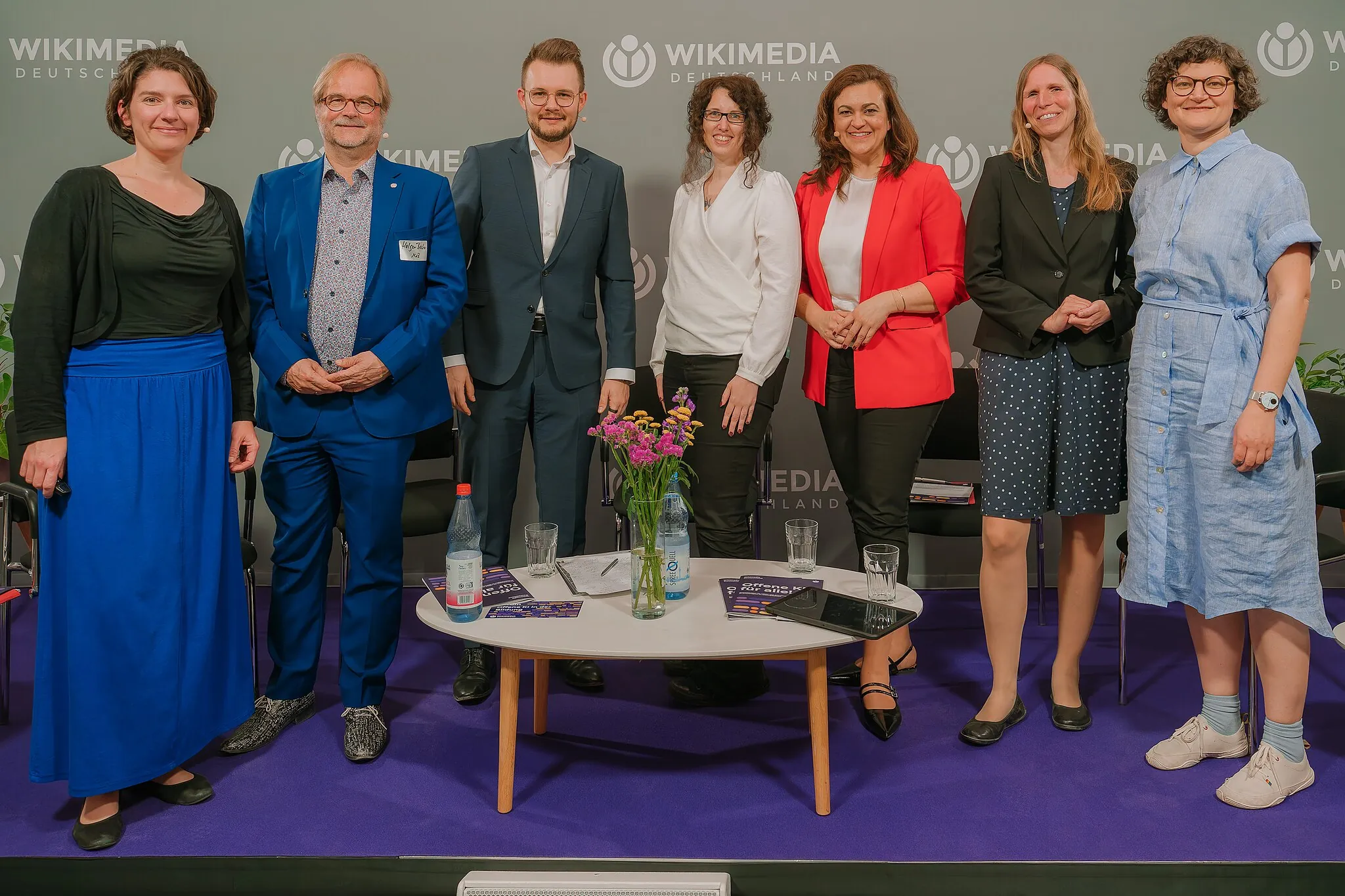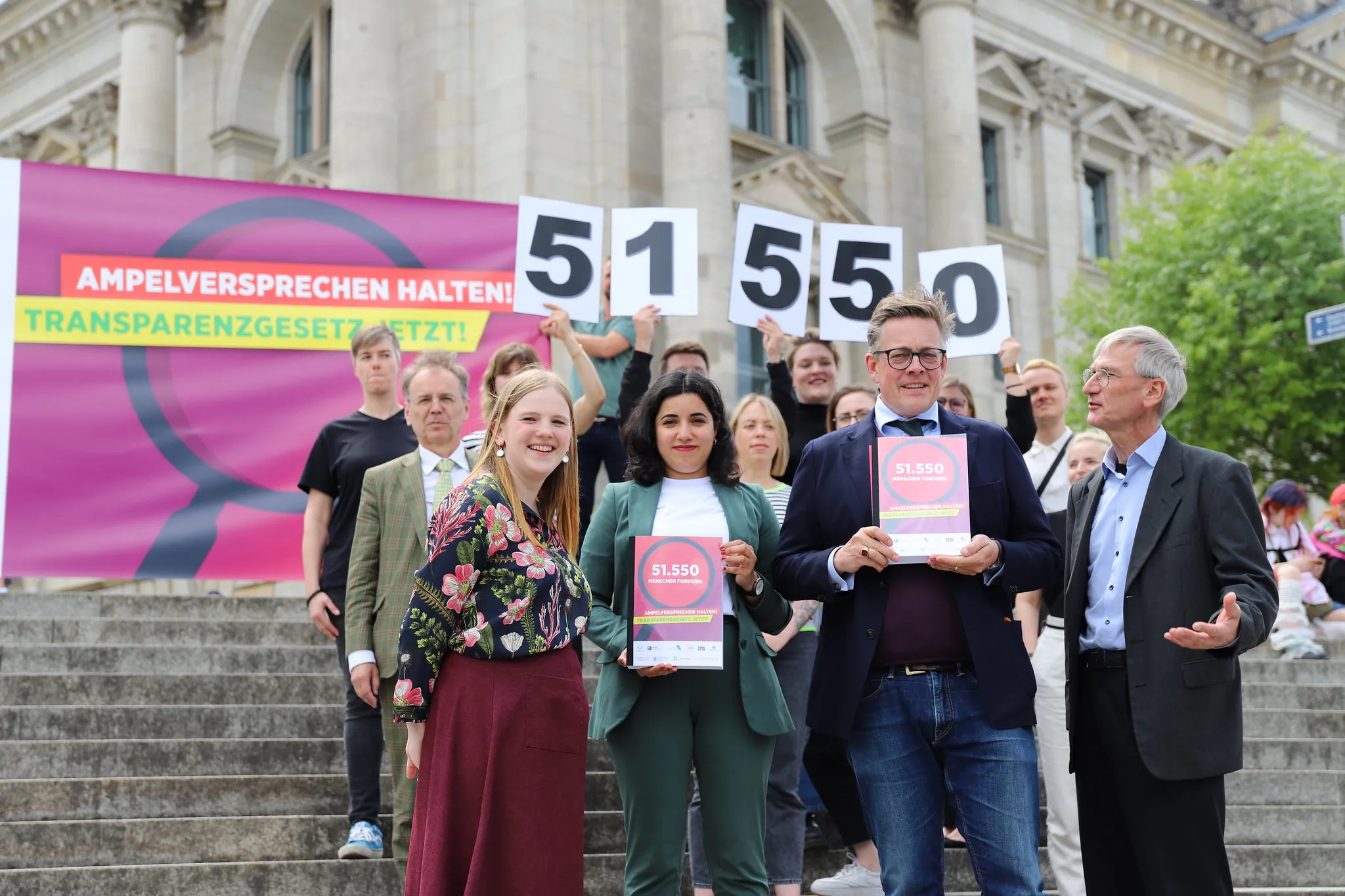Framework
Strong alliances for Free Knowledge – our voice in politics


How freely accessible knowledge is depends on political decisions and legal frameworks. That is why Wikimedia Deutschland is fighting for policymakers to create better framework conditions for Free Knowledge – not only in Germany, but also at an international level. In 2024, we also gained the attention of decision-makers in politics, education and culture.
Ten policy recommendations for open AI in education
Generative AI applications such as ChatGPT & Co are being used in more and more areas of life and work. While students want to learn with and about artificial intelligence, too, there is also growing concern about the risks: Most AI models are commercial and their functioning is not transparent, their responses are often unreliable and there is a lack of regulatory frameworks and critical reflection. If AI applications are increasingly shaping learning and teaching, what could open alternatives look like that comply with data protection regulations and are oriented towards the common good? To discuss this question, we launched the Open AI in Education Forum in 2024. Among the participants: educational scientist Nele Hirsch, participants in the initiative “More openness in AI in education” and numerous experts from the education sector.
This resulted in 10 education policy recommendations on infrastructure, education in practice and legal foundations.

At the forum, we gained the following two important insights: The German federal government and the individual state governments should definitely fund learning and training resources on AI under free licenses. And they should jointly provide public digital infrastructures for hosting open AI systems.Dr. Anne-Sophie Waag, Education Policy Officer
During the presentation of the results, it became clear that the recommendation to create a new training culture and structure with open formats has political support. The participants also agreed across party lines that open and transparent AI systems should be used in education.
In order to advance the implementation of the policy recommendations, 2024 was characterized by intensive discussions with members of the Committee on Education, Research and Technology Assessment of the German Bundestag, with employees of the Federal Ministry of Education and Research as well as the state institutes for teacher training and the media centers in the individual German federal states. The Standing Conference of the Ministers of Education and Cultural Affairs (KMK) also invited us to present our findings.
In 2025, we are continuing the dialog with the “Open AI in schools” conference. In cooperation with the State Institute of Lower Saxony in charge of quality development in schools, we want to visualize the potential of open AI applications and raise awareness for the requirements needed to use them effectively in education.

Federal government recognizes digital volunteers – finally!
In 2024, we continued our long-standing commitment to digital volunteering with a great deal of energy. We explained how digital volunteering differs from analog volunteering, what the opportunities are to get involved and what political framework conditions are needed to effectively promote digital volunteering. We were listened to several times in 2024: at the Federal President’s Citizens’ Festival, we answered many questions about Wikipedia, Wikimedia Commons and Wikidata and were able to show visitors just how diverse digital volunteering is.
The Federal Ministry for Family Affairs, Senior Citizens, Women and Youth has also recognized this in 2024. After we pointed out that digital volunteering should be included in the engagement strategy, ministry representatives successfully exchanged ideas with the team Policy & Public Sector. In the engagement strategy published at the beginning of December, the German government recognized digital volunteers as an independent form of engagement for the first time – that is a milestone.
Setback and partial success: the fight for openly accessible examination papers continues

Of course, not all battles can be won immediately, as the “Classified Examination” project shows. Together with the portal for freedom of information FragDenStaat, we have been demanding for years that examination papers from previous years should be made digitally and publicly available – after all, they were financed with public funds. However, numerous Ministries of Education are still selling or giving away the license for publication to publishers who make a profit from this. For us, this is unacceptable! That’s why we launched a petition in March 2024 to show the Ministries of Education and Cultural Affairs in the German federal states that many people share our demands. However, although almost 55,000 signatures were collected, the Standing Conference of the Ministers of Education and Cultural Affairs rejected the delivery of the petition. At least the Baden-Württemberg Ministry of Education and Cultural Affairs announced that it would make old examination papers freely available with immediate effect – a partial success.
Wikimedia Deutschland initiates community of practice for free access to culture
More and more museums and cultural institutions are making their collections – or parts of them – available digitally and under a free license. Not only does this facilitate virtual tours through art collections, it also unlocks new opportunities for researchers. However, science benefits above all when cultural data is not only open, but also networked. Only the links made possible by Linked Open Data reveal previously undiscovered connections – especially with regard to the research achievements of marginalized groups. Examples are women who have done important research work but whose achievements have so far been attributed to men; or local guides or collectors from the Global South who played a decisive role in Western research trips in colonial times (not always voluntarily) but were never mentioned in the official historiography of museums. They can gain visibility through Linked Open Data.
Linked Open Data explained simply
Linked Open Data (LOD) means that freely accessible data is linked together. This allows information from different sources to be combined and used more effectively. For example, a database on famous personalities is automatically linked to a database on birthplaces. LOD makes knowledge networkable and machine-readable – similar to Wikipedia, but with structured data.

Wikimedia Deutschland promotes networking of open cultural data and the work of those who use it to embark on digital research journeys. Our goal for 2024 was to establish the Community of Practice (CoP) – a practice-oriented community of around 40 experts who exchange ideas and learn from each other. These include experts from cultural heritage institutions who open up their collections and make cultural data accessible, researchers from the humanities and cultural studies, and expert Wikimedia volunteers. In the CoP, they work together to develop methods for using and expanding the Free Knowledge database Wikidata, for editing the Wikimedia Commons media archive or creating their own databases with the Wikibase software and linking them to other open data sets.
The new community of practice is called “WikiKult – Open Cultural Data” and has been meeting regularly since 2024. The participants exchange experiences from projects, share their knowledge about funding opportunities or obstacles they encounter and develop strategies further that enable them to share knowledge and unlock cultural heritage.
Working together for a better internet
True to the motto “Together we are strong”, we joined forces with other organizations in 2024 to make the internet more open and fairer. As part of the Transparency Act Alliance, we submitted a petition with over 51,000 signatures to members of parliament from the governing parties SPD, The Greens and FDP. The demand: The Federal Transparency Act announced by the federal government has to be introduced to oblige authorities and ministries to publish information about their own work and to make knowledge that is financed with public funds freely and digitally available themselves – for all citizens and thus also for open knowledge projects such as Wikipedia. However, by the end of the traffic light coalition, the Federal Ministry of the Interior had not introduced a corresponding bill in the Bundestag.
In the coalition agreement and the digital strategy, the German government formulated the goal of strengthening the digital sovereignty of the administration through open source software and open standards. However, while the open source share of federal spending on software development has only amounted to 0.5 percent since the beginning of the legislative period, billions have been poured into software solutions from large tech companies. In November 2024, we and other associations and organizations called for public budget funds to be reallocated for 2025.

Public funds must flow into free and sustainable software – for more independence and sustainability in the administration. To this end, the German government should define a target date for the transition and finally invest public budget funds in open source.Lilli Iliev, Head of the Policy and Public Sector team

Strengthening Free Knowledge worldwide – our international commitment
We are committed to openness, transparency and the common good in digital policy – not only in Germany, but also across the EU and on an international level. While corporations use lobbying to influence decisions in Brussels, we are fighting for an even stronger voice for platforms such as Wikipedia that are oriented towards the common good, for alternatives such as Mastodon or Pixelfed to gain more traction, and for open digital infrastructures to be promoted through European legislation.

To increase our effectiveness, Wikimedia Deutschland is a member of Wikimedia Europe, an association of 22 Wikimedia organizations. We also form alliances on a European level, such as in November 2024 in a joint appeal to the EU Commission to enforce a ban on personalized advertising on the internet. Or in an alliance of various stakeholders on the occasion of the AI Act: in an open letter, we called for a ban on biometric surveillance. Anyone who wants to share knowledge (fearlessly) online must be able to be sure that they are not being monitored.
At an international level, we aligned our political work in 2024 with the United Nation’s Global Digital Compact (GDC). The GDC, which was adopted in 2024, established global guidelines for a free, open and secure internet. We would like to highlight in this context that digital public goods such as Wikipedia, free software and open learning resources are an important building block for achieving precisely this, because they promote digital participation and enable access to knowledge for everyone. We submitted the recommendations that we developed together with other civil society organizations and experts from academia to the Federal Foreign Office during the negotiations on the GDC. Shortly before its adoption in November 2024, our Executive Director Franziska Heine emphasized the importance of digital commons for sustainable and equitable digitalization at the United Nations Future Summit (more on this in the Wikimedia article).
Wikipedia officially recognized as Digital Public Good
The more power tech oligarchs, commercial platforms and so-called data octopuses gain in the digital space, the more important it is to strengthen the public, non-profit and truly social places on the internet. This refers to digital commons, also known as digital public goods. The Digital Public Goods Alliance, a United Nations initiative, declared Wikipedia a Digital Public Good at the beginning of 2025 because it promotes UN goals such as access to education and the reduction of inequalities.




